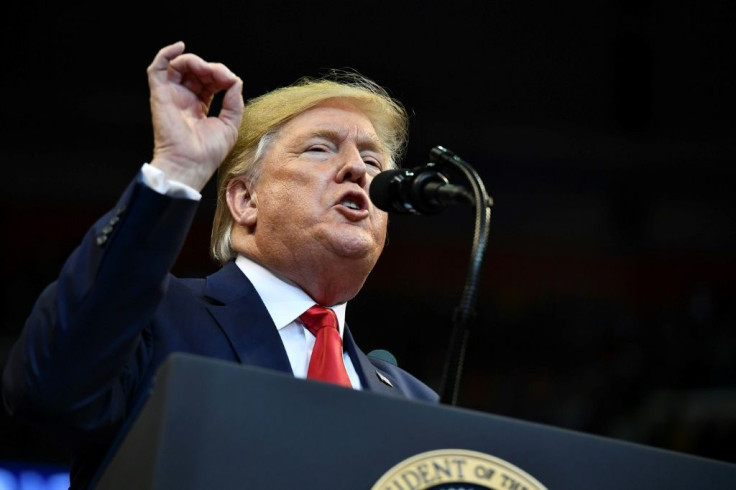Monday's Stock Market Open: US Equities Open Mixed On Strong Chinese Manufacturing Data, New Tariffs on South America Metals

U.S. equity indexes have dropped on some weak U.S. manufacturing data along with renewed trade and tariff concerns.
The Dow Jones Industrial Average dropped 199.26 points to 27,852.15 while the S&P 500 fell 21.62 points to 3,119.36 and the Nasdaq Composite Index dropped 89.76 points to 8,750.71.
President Donald Trump warned early Monday he will restore tariffs on all steel and aluminum imports from Brazil and Argentina, accusing those nations of “presiding over a massive devaluation of their currencies.”
Manufacturing and spending data suggests a weakening economy in the U.S.
The Institute for Supply Management said its manufacturing index slipped to 48.1 in November from 48.3 in October, suggesting the business climate is getting worse. Economists had expected the index to rise to 49.2. November marked the fourth consecutive month that the figure was below 50, which suggests business contraction.
New orders dropped to 47.2, from October's figure of 49.1. Inventories were at 45.5, down 3.4 points from October.
“Global trade remains the most significant cross-industry issue,” said Timothy Fiore, chair of the Institute’s manufacturing business survey committee.
“The small decline in the [Institute] manufacturing index left it close to a decade low and illustrates that the manufacturing sector isn’t out of the woods,” wrote Andrew Hunter, senior U.S. economist at Capital Economics “Manufacturing output looks set to rebound in November specifically as the [General Motors] strike disruption in the auto sector unwinds, but this latest [Institute] weakness suggests that underlying conditions in the sector remain unusually weak.”
The Institute data neutralized a separate survey on U.S. manufacturing by Markit, which actually rose to 52.6 reading from 52.2 in October.
The Commerce Department reported that U.S. construction spending dropped 0.8% in October, while economists had expected a 0.4% increase. Investments in private projects had fallen to the lowest level in three years.
Meanwhile, China has insisted that any phase one trade deal with the U.S, is contingent on a rollback of U.S. tariffs. Axios reported renewed tensions over Hong Kong protests will probably delay any deal until the end of the year.
In retaliation for Trump signing a bill that supports Hong Kong pro-democracy protesters, China has threatened to sanction some U.S. rights organizations and prevent U.S. Navy warships from visiting Hong Kong,
Hua Chunying, a spokeswoman for the Chinese Foreign Ministry said on Monday that U.S. groups facing sanctions include the National Endowment for Democracy, Human Rights Watch and Freedom House.
“China urges the U.S. side to correct its mistakes and stop any words and deeds that interfere in Hong Kong affairs and China’s internal politics,” Hua told reporters in Beijing. “China will take further necessary actions in light of the development of the situation to firmly safeguard Hong Kong’s stability and prosperity, as well as China’s sovereignty, security and development interests.”
But China received some good news on the economic front.
China’s manufacturing purchasing managers index for November came in unexpectedly high at 50.2, versus expectations of a reading of 49.5. Readings above 50 denote growth, while below signals contraction.
“This improvement in the manufacturing [purchasing managers index] is important because we can say with more certainty, than at the beginning of the year, that China’s macro outlook is indeed stabilizing,” said Aninda Mitra, senior sovereign analyst at BNY Mellon Investment Management.
Overnight in Asia, Hong Kong's Hang Seng climbed 0.37% while Japan’s Nikkei 225 surged 1.01% and China’s Shanghai Composite edged up 0.02%
European markets all closed lower with the FTSE 100 down 0.82% while Germany's DAX plunged 2.05% and France's CAC 40 dropped 2.01%.
Crude oil futures jumped 1.58% to $56.04 per barrel and Brent crude gained 1.16% at $61.19. Gold futures fell 0.25%.
The euro was up 0.52% to $1.076 while the pound sterling rose edged up 0.02% at $1.2934.
© Copyright IBTimes 2024. All rights reserved.





















